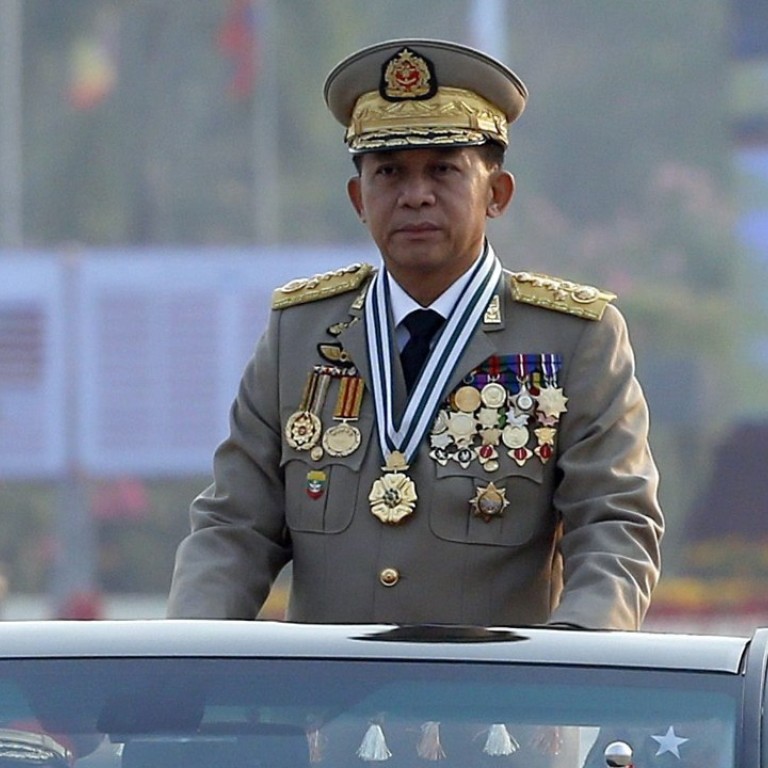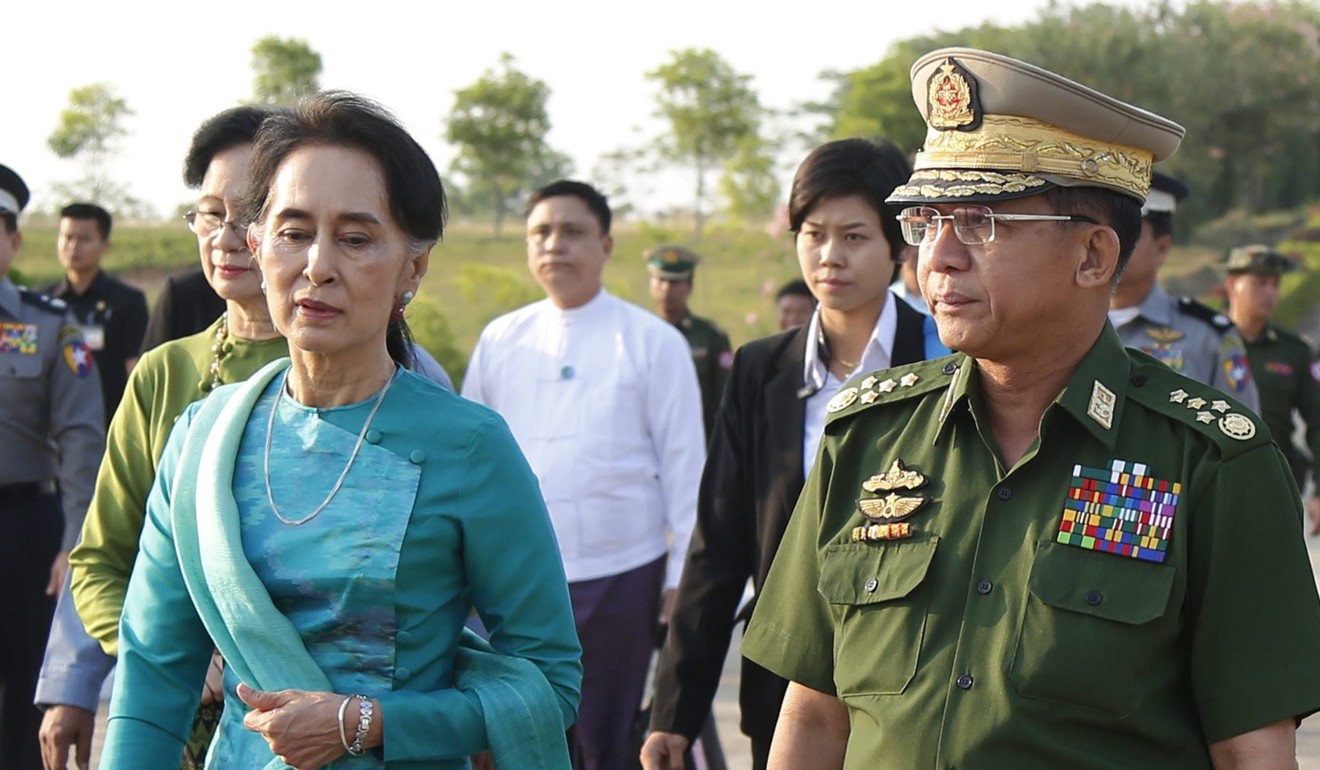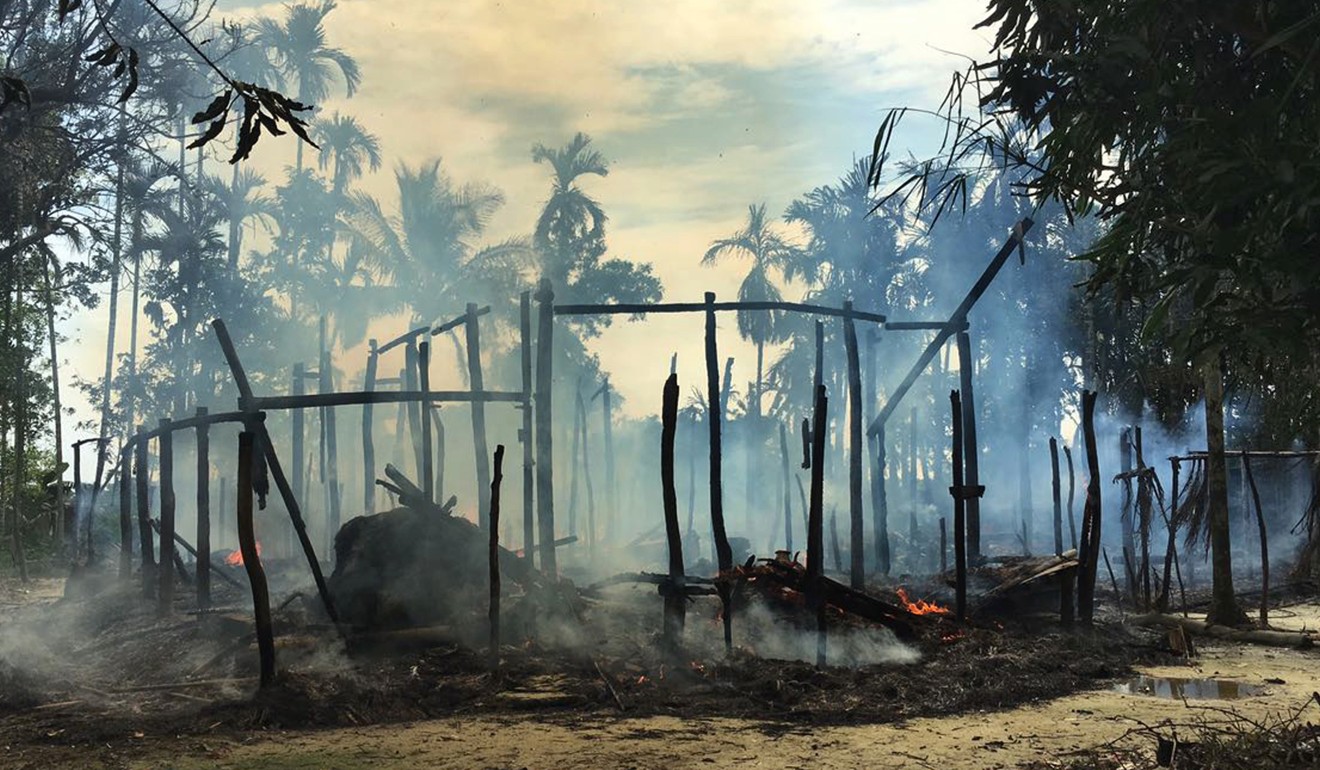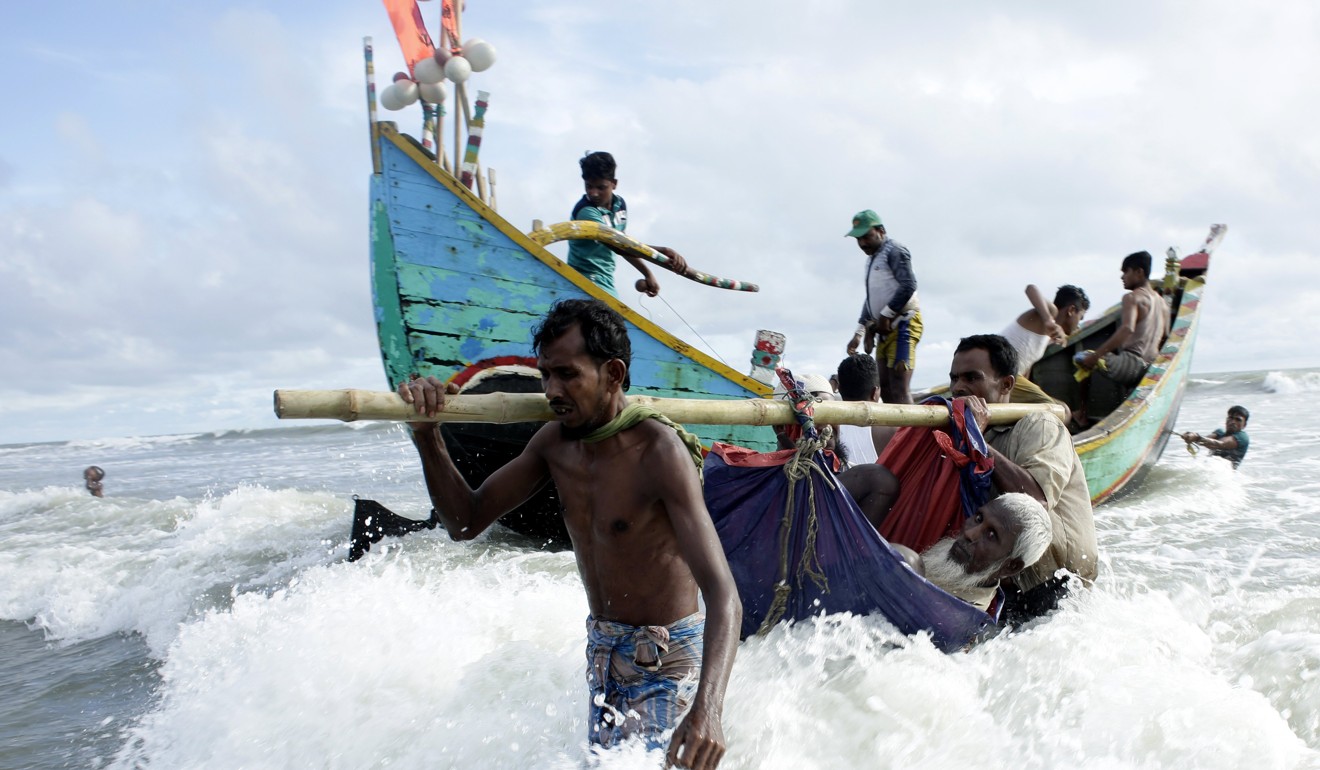
Here’s the one man in Myanmar who can end Rohingya misery
General Min Aung Hlaing is arguably ‘the most powerful man in the land’. Even foreign governments – including China and the US – appear unwilling to stand in his way
If there’s one person who can immediately end the brutal scorched-earth campaign against the Rohingya Muslims in Myanmar’s Rakhine region, it is Senior General Min Aung Hlaing. But as the number of refugees fleeing the violence for neighbouring Bangladesh rapidly rises towards 400,000, there is little sign the 61-year-old military chief is considering a cessation of hostilities.
On the contrary, international rights groups like Amnesty International and Human Rights Watch say the military – known locally as the Tatmadaw – appears determined to continue its campaign of arson to drive out the Muslim population.
The United Nations last Monday branded the government offensive a “cruel military operation” which “seems a textbook example of ethnic cleansing”.
Observers say such harsh words are unlikely to move Min Aung Hlaing, who has led the Tatmadaw since 2011. He is eighth in rank in the official national leadership hierarchy but wields outsize influence as military powers permeate every part of society.

Power ostensibly resides in the hands of Aung San Suu Kyi, the leader of the country’s democratically elected National League of Democracy, and Myanmar’s state counsellor. She spent decades behind bars during junta rule before her release in 2010.
Despite the transition to civilian rule, the military controls 25 per cent of parliamentary seats as well as the defence, interior and border affairs ministries. “Why would the general suddenly stop now? The military views the situation as a threat to sovereignty, and more importantly, few have the leverage to make the general back down. He’s the most powerful man in the land,” a Yangon-based political risk expert told This Week in Asia.
The military offensive over the past three weeks was a response to attacks against government facilities by the insurgent Arakan Rohingya Salvation Army (ARSA), which claims to be a “self defence group” fighting against state repression of Rohingya.
The 1.1 million-strong Rohingya population is indigenous to Rakhine in the northeast of Myanmar but the government insists they are illegal immigrants from Bangladesh.
Rights monitors say ARSA is poorly armed – perpetrating its attacks in August with small arms and swords – and the military counteroffensive was disproportionate to the threats it faced.
“Concerned governments need to convey the message to Burma’s Senior General Min Aung Hlaing and other senior commanders that they could be implicated in grave crimes unless they act swiftly to stop the atrocities,” said Phil Robertson, deputy Asia director of Human Rights Watch.
On Thursday, Amnesty International said fresh satellite imagery, fire detection data, photographs and videos along with eyewitness accounts showed “an orchestrated campaign of systematic burnings”.
“The evidence is irrefutable – the Myanmar security forces are setting northern Rakhine state ablaze in a targeted campaign to push the Rohingya people out of Myanmar. Make no mistake: this is ethnic cleansing,” said Tirana Hassan, the group’s crisis response director.

Most observers were pessimistic about the chances of Min Aung Hlaing backing down before he is satisfied the ARSA has been fully neutralised.
While Min Aung Hlaing has faced questions about the military’s human rights record, governments including India, Austria, Japan and Germany have rolled out the red carpet for him in recent times. Foreign governments view engagement with the Tatmadaw as vital to influence reform within.
Western powers meanwhile view Myanmar – and the military – as an important player in keeping an increasingly assertive China on an even keel in Southeast Asia.
Nehginpao Kipgen, an India-based Myanmar expert, said a unanimous UN Security Council resolution condemning the Tatmadaw would be “the most effective pressure and pain point”.
But this was unlikely to happen because “a veto-wielding member, China, a close ally of Myanmar, and perhaps supported by Russia, would block any attempt to push for such measure,” said Kipgen, an assistant professor at the Jindal School of International Affairs.
The 15-member UN Security Council on Wednesday condemned the violence and urged safe passage for humanitarian workers after a closed-door meeting held at the request of Sweden and Britain.
Beijing reportedly blocked a proposal from Egypt to ensure the right of return to the Rohingya sheltering in Bangladesh. The statement by the Security Council was its first about Myanmar in nine years.
Meanwhile, Myanmar’s state-run Global New Light of Myanmar newspaper has reported China endorsed the military campaign in Rakhine.
“The stance of China regarding the terrorist attacks in Rakhine is clear, it is just an internal affair,” the newspaper quoted China’s ambassador Hong Liang as telling top government officials. “The counter-attacks of Myanmar security forces against extremist terrorists and the government’s undertakings to provide assistance to the people are strongly welcomed.”

The Myanmar-based political risk expert said US Secretary of State Rex Tillerson’s comments on Thursday calling for an end to the “horrors” in Rakhine signalled the scale of violence was reaching a tipping point.
“The rights groups have done their fair share ... individual governments now need to come out in condemnation of the military, in the West and within the region,” he said.
Kipgen, the India-based scholar, said “because of their economic and military power, and their global influence, the United States and China would be the two individual countries that can be most effective in dealing with the Myanmar military generals”. ■
Additional reporting by Agence France-Presse

